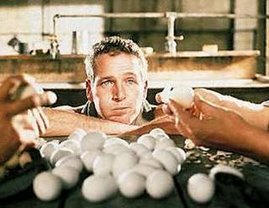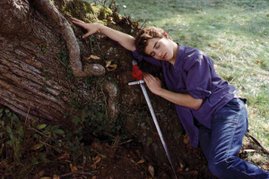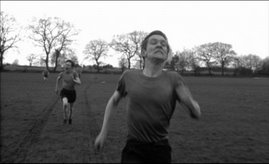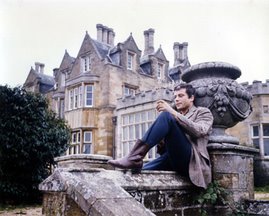 FESTIVALS: LES RENDEZ-VOUS DU CINÉMA QUÉBÉCOIS
FESTIVALS: LES RENDEZ-VOUS DU CINÉMA QUÉBÉCOISVoir le cinéma québécois
Paru dans le magazine torontois Cinemascope en 2002
Now in its 20th year, Les Rendez-vous du cinéma québécois is facing an identity crisis. Having been introducing in 1982 to a world already comfortable with video rentals and blockbuster budgets, Les Rendez-vous was intended to provide a survey of small-scale films in Québec that rarely enjoyed a long run in local theatres. Under its current leadership, however, Les Rendez-vous has become a more multifaceted event by staging competitions between films of international origins, including a special section devoted this year to young Catalan filmmakers.
But what the festival has gained in soul and warmth by opening itself up to a wider constituency, it has lost in focus and coherence. The province of Québec hosts annually more than 50 film festivals, each of which predominantly presents genre films aiming to reach a broader audience. In order to stay true to its roots, Les Rendez-vous would do better to avoid pleasing everyone.
This past February, Les Rendez-vous saluted directors Jean-Claude Labrecque (premiering his newest documentary, Le R.I.N.) and Robert Morin, the creativity of the Chicoutimi Short Film Festival Regard sur la relève au Saguenay. It was also natural that Les Rendez-vous would extend some credit to the groups that have remained colleagues since the festival’s beginning, so also saluted were the 25th anniversaries of La Coop Vidéo and Vidéographe, and the Montreal-based distributor Cinéma Libre, three production companies that remain active as talent scouts and supporters of independent filmmaking. Add to this mix more competitions and premieres than in previous editions of the festival, and you get a sense of the amount of energy that artistic director Ségolène Roederer and her team have invested in upgrading the event.
The festival’s Opening Night provided the opportunity to evaluate the body of work of local cinéma vérité pioneer Gilles Groulx, the National Film Board of Canada’s reigning genius from the 1950s to the 1970s. Denis Chouinard’s documentary Voir Gilles Groulx – its title a reference to Groulx’s short film “Voir Miami” (1962) – is a formal introduction to Groulx’s achievement as both a methodical editor and a mythical director. With Le Chat dans le sac (1959) opening Critic’s Week in Cannes and Entre tu et vous (1969) paving the way for underground filmmaking in Québec, Groulx became known as a radical artist who exercised full control over his films in spite of NFB censorship.
Fellow craftsmen like Denys Arcand, Bernard Gosselin and Roger Frappier appeared in the film and spoke of Groulx with gratitude, reminiscing about the days when talent mattered more to the NFB than box office or exposure. As Chouinard’s tribute closes, he shows us a picture of Groulx as an old man with long hair and a desperate gaze that resulted from a car accident he suffered in 1981. Groulx died quietly in 1994, but seven years before in passing, director Richard Brouillette recorded conversations with him and the resulting film, Trop c’est pas assez, was also screened this year. Brouillette’s work serve as a missing link and counterpoint, conveying the mixture of sickness and clairvoyance that marked Groulx’s last days. The fact that NFB produced Chouinard’s film and issued a complete DVD box set of his body of work implies an apology for their failure to previously defend and effectively promote the films of one of their most brilliant residents.
The one prerequisite for the festival’s feature films section is that the movies shown are films that already screened in Québec at some point during 2001 with mixed results, like Louis Saïa’s crowd-pleaser Les Boys III standing incongruously alongside Catherine Martin’s intellectual massage Mariages. For the adventurous, Pierre Goupil’s autobiographic essay La vérité est un mensonge (The Truth is a Lie) was quite an experience, resembling the video that would result if Donigan Cumming – whose hypnotic My Diner with Weegee was also screened – turned his camera on himself. Goupil’s poetic statement about art and mental health featured the director trying to get done with a film about his personal struggle with dementia. A dry and not-so subjective camera (held mainly by DP Jacques Leduc) witnesses the daily puzzle in Goupil’s head, as the director/performer confronts his illness with writings, love and artistic recognition. Goupil has always loved Godard, and the way in which Goupil continues to interrupt sequential continuity with theoretical statements seems passé by today’s standards. But the challenge of blending authenticity with a first person narrative lends La vérité est un mensonge ambiguity, and it becomes an interesting reflection on the cinematographic (re)construction of the Self, as well as a study of how film can be used as a therapeutic tool.
Les Rendez-vous also teamed with K-Films Amérique, an important distributor of independent international and local auteur’ films) for the world premiere of Rodrigue Jean’s Yellowknife, a wild ride to the Great Canadian North in the company of a neurotic girl, her reckless brother, an has-been singer and her subversive manager, as well as two homosexual twin strippers. Indeed, despair in French-Canadian cinema hasn’t looked this compelling since Jean-Claude Lauzon’s Un zoo la nuit (1987). This is mostly thanks to Belgian director of photography Yves Cape – who shot Bruno Dumont’s L’Humanité – and art director Gabriel Tsampalieros.
Set in dry landscapes and such uninviting locations as low-rate motels, lost cabarets and hostile greasy spoons, Yellowknife is the unlikely brother of films like Sandrine Veysset’s Martha…Martha (2001) or the Polish Brothers Twin Falls Idaho (1999), since characters, tone and shooting style seem to have been borrowed indiscriminately from European and American independent noirs alike. A former dance choreographer, Jean eschews bold dialogue and places a lot of emphasis on the capacity of body movement to convey the character’s psyches. He also privileges a dynamic framing of scenes with few action/reaction shots, so that we can simultaneously understand the states of mind of all of the performers. The negative side of this direction implies that Jean has to leave his characters’ inner struggles unexplored, to such an extent that knowing the reasons behind their actions seems matter less.
That said, Yellowknife is just the sort of auteur cinema that European programmers are looking for, and its dark, sex-obsessed material will eventually makes it a strong contender for the international film festival circuit. However, the film’s greatest achievement may be how it managed in the Canadian context to cull production funding from the Manitoba, Québec and New Brunswick governmental funding programs. Without ever setting foot in the Northwestern Territories, the production team gathered enough money to let Jean write an in-your-face script, hire a renowned cinematographer, and shoot in various locations. For this, Yellowknife deserves attention and respect, and was undoubtedly the main attraction of Les Rendez-vous’ selection.
Charles-Stéphane Roy is a regular contributor to Séquences magazine. He is also a film programmer at Montréal’s Vues d’Afrique Film Festival and Sherbrooke’s L’International du cinéma de l’Estrie.
© 2007 Charles-Stéphane Roy







